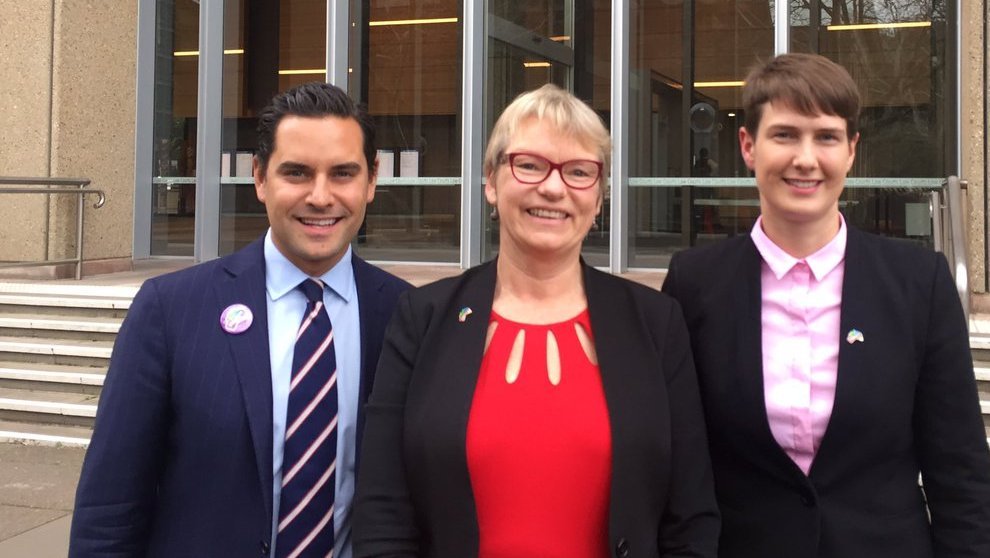
The High Court will considered two cases questioning the legitimacy of the government’s postal survey for marriage equality just days before the survey forms are sent to every Australian.
The legal challenges will be heard by the full bench of the court on 5 and 6 of September, Chief Justice Susan Kiefel told a hearing in Sydney on Friday.
The Turnbull government announced earlier this week that it would instruct the Australian Bureau of Statistics (ABS) to conduct a nation wide survey to gauge the country’s interest in changing the marriage laws so that same-sex couples and transgender people would be allowed to get married.
The government opted for the ‘postal plebiscite’ plan after the senate knocked back their legislation for a compulsory attendance vote at the ballot box. It was the second time the government has asked the senate to consider the legislation.
Legal experts have suggested that the government’s plan may not be constitutionally valid. Two challenges have been lodged against the government’s plan.
The first was lodged in Sydney by the Public Interest Advocacy Centre on behalf of Tasmanian independent MP Andrew Wilkie, advocate Felicity Marlowe and the Parents and Friends of Lesbians and Gays (PFLAG).
The Human Rights Law Centre (HRLC) also submitted an application in Melbourne on behalf of Australian Marriage Equality and Greens Senator Janet Rice.
Announcing their decision to challenge the plan, Anna Brown, Director of Legal Advocacy at the HRLC, said the proposal was a waste of tax payers money.
“This is simply about fairness and equality for LGBTIQ Australians who should be free to marry the person they love. It is crucial that we launch these proceedings and confirm the legal validity of the postal plebiscite before $122 million of taxpayer dollars is spent on an unfair and unnecessary process only designed to frustrate and delay marriage equality,” Brown said.
The HRLC will be arguing that the expenditure of funds on the plebiscite is not constitutionally valid because it has not been authorised by legislation.
“There are serious legal issues that need to be considered by the Court. Most importantly, how the expenditure of funds can be valid when the power the Minister is relying on applies only in ‘urgent and unforeseen’ circumstances. It’s difficult to see how the fulfilment of an election commitment is unforeseen,” Brown said.
One of the points that group will be arguing is that while the Finance Minister is able to seek an advance from funds appropriated under the Appropriations Act, it is only allowed in ‘urgent and unforeseen circumstances’.
The marriage equality advocates will argue that the creation of a survey on marriage equality was neither urgent or unexpected. They will argue that since the government announced their plebiscite plans prior to the election, and had asked for costings of a postal option in advance, the situation can not meet the criteria of being “unexpected”.
The government will not be able to distribute any of the survey papers until the case has been heard by the court. With the hearing scheduled just a few days before the papers are due to be sent out, the move has created another challenge for the government.
Prime Minister Malcolm Turnbull has declared that if the postal survey is not able to proceed the government will not considered the option of a free vote in parliament.
OIP Staff, image: Alex Greenwich from Australian Marriage Equality, Senator Janet Rice and Anna Brown.
Support OUTinPerth
Thanks for reading OUTinPerth. We can only create LGBTIQA+ focused media with your help.
If you can help support our work, please consider assisting us through a one-off contribution to our GoFundMe campaign, or a regular contribution through our Patreon appeal.





